#Coses de la terra
Explore tagged Tumblr posts
Text
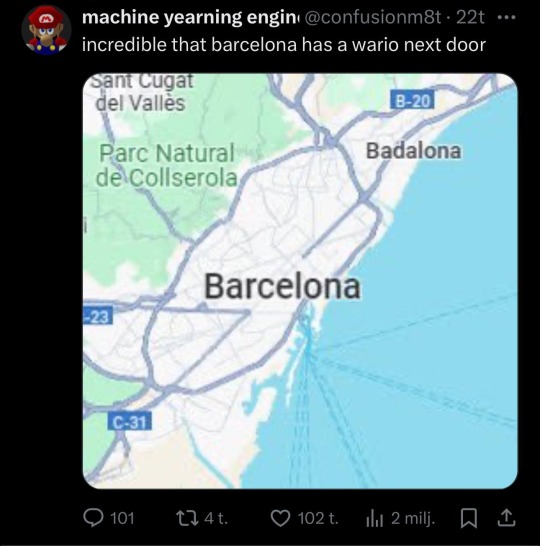
#humor#badalona#barcelona#catalunya#coses de la terra#geography#geography memes#europe#humour#memes#wario#maps
3K notes
·
View notes
Text

MIKU CATALUNYA!!
#hatsune miku#vocaloid miku#miku#miku fanart#hatsune miku fanart#worldwide miku#catalunya#català#grallers#coses de la terra#calçots#pa amb tomàquet#catalan culture#my art
733 notes
·
View notes
Text
Are you 18-35 years old and an activist or academic from a minoritized or minority language? This might interest you!
(And even if you don't meet the criteria but are interested in participating in another way, the organizers still encourage you to write to them!)

Website link:
#minoritized languages#minority languages#minorities#sociolinguistics#language revitalization#languages#langblr#lingblr#coses de la terra#indigenous#indigenous languages#internationalism#stateless nations#national liberation#💬
254 notes
·
View notes
Text


Twitter requests with catalan Miku:
79 notes
·
View notes
Text

tapestry of creation, 11th century, girona
92 notes
·
View notes
Text
Vale, prou, aquí la qüestió realment important:
#no vull explicar allò del [redacted] però si hi jugueu ho entendreu. em sap greu era la millor que podia trobar :/#jo ara per ara me les sé totes però a vere quant dura això#perce rambles#coses de la terra
26 notes
·
View notes
Text

Si encara no heu vist El dia de la marmota, només avui hi ha un 50% de descompte! Acaben les funcions el 22 de març. És una obra molt divertida i el repartiment de Barcelona és molt bo, a més que està MOLT bé que es pugui estrenar musicals de gran format d'èxit mundial traduïts al català!

Aquí us deixo l'enllaç del descompte.
Si voleu subscriure-us a la newsletter de Teatre Barcelona per rebre informació i altres descomptes, podeu unir-vos al canal de Telegram o subscriure-us a la newsletter d'email des de la mateixa pàgina web de Teatre Barcelona.
#el dia de la marmota#teatre barcelona#barcelona teatre#teatre en català#coses de la terra#teatre musical#descomptes
2 notes
·
View notes
Text
youtube
Here's another song translation, by Mallorcan band Reïna! Since they're from the Balearic Islands and I don't think I've made a post about that dialect of Catalan I thought this would be an interesting chance to do that as well. But also the song is just really pretty, so I hope you guys enjoy!
Ja m’ha quedat clar que ara vols ser tu es dolent It’s become clear to me that now you want to be the bad guy I que m’escoltes per a no estar tot sol amb es teus pensaments And that you listen to me not to be all alone with your thoughts I que tots es camins que no fèiem encara hi són And that all the roads we never took are still there Tot i que ara semblin més llargs i torts Even though now they seem longer and more twisted
Ja m’ha quedat clar que no tenc clar si t’entenc It’s become clear to me that I’m not clear if I understand you I que te m’acostes per no estar tot sol en es mals moments And that you get close to me not to be all alone in the worst moments I que tot es temps que teníem s’ha fos And that all the time we had has melted Entre es dits que ara semblen més llargs i torts Between fingers that now seem longer and more twisted
[ TORNADA: Ets tan dolç que per dins me mata You’re so sweet that it kills me inside Te tenc tan a prop que sempre m’enrampes I hold you so close that you always give me a shock És tan fort que ja no té importància It’s so much that it doesn’t matter anymore Ets tan dolent que m’arriba a fer gràcia You’re so bad that it’s become funny to me ]
Ja m’ha quedat clar que ara ets tu es dolent It’s become clear to me that now you’re the bad guy I que m’enyores només quan saps que ho has fet malament And that you only miss me when you know you’ve done a bad job I maldament mos enteníem, ara ja no And even though we used to understand each other, we don’t now I d'ençà es dies crec que tornen més llargs i tot And from hereon out I think the days are becoming longer and all
[ TORNADA ]
Here are some features of Balearic/Mallorcan Catalan which you can hear in the song:
l'article salat - instead of el/la/els/les it's es/sa/es/ses
different distributions/realization of the neutral vowels - /ə/ can also be pronounced in stressed syllables (generally where you would have /ε/ in Central Catalan) and there's similar vowel reduction to Valencian of /ɔ/ and /o/ to /o/ rather than /u/
Using the pronomial clitics me/te/etc. which in Central Catalan usually only come after the verb before verbs instead of the forms em/et/etc. - also note mos (= ens/nos) which also occurs in lots of other dialects of Catalan
importància and gràcia are pronounced importanci and graci (this is common with a lot of words ending in -cia)
tenc = tinc
maldament = encara que
Bonus: Pronouncing /k/ as palatal /c/ - this is much less common, but the lead singer of Reïna does it which I thought was interesting (in contrast to Maria Jaume who doesn't seem to)
#let me know if i missed any i'm much less familiar with mallorcan catalan than i am with valencian and central catalan :')#i just like this song it's very sweet sounding and the lyrics go kind of hard#catalan:general#general:music#catalan:music#general:translation#catalan:translation#catalan:linguistics#catalan:pronunciation#idk man i don't have a dialectology tag so i'm not sure how to file this#coses de la terra#catalan#(comentari al marge la maria jaume s'assembla molt a una noia que crec que era la meva primera crush shdfjhsfkh)#Youtube
16 notes
·
View notes
Text
Something very strange happened, and I think we need to have a talk about the way some people who don't know about Catalan culture misrepresent the Tió (our pre-Christian Christmas present-bringer, a log who poops presents 🪵🎁).
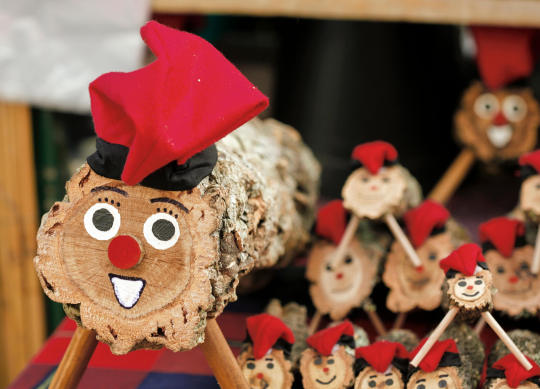
I have a relative who is a teacher in an adult school, she teaches Catalan language (mostly to immigrants). Some days ago, they were doing an activity about Catalan holidays, and two of her students said that Tió should be banned and that it's the worst thing they have ever heard. My relative was very shocked and asked why they could say such a thing (imagine, it's like saying Santa Claus should be banned in the USA). Their reasoning was that they completely misunderstood everything about it. These people are native Spanish speakers and assumed that the Catalan word "tió" (meaning "log" 🪵) means the same as the Spanish word "tío" (meaning "uncle"), even though both words are pronounced differently. They believed that the Tió represents a man and that we tell children to beat people up, so much until they poop themselves, threatening them to give us things. They said it promotes violence to children and that it's disgusting. Nothing further from the truth.
This is not an isolated incident because a few days ago I saw a post on Tumblr repeating this same mistake. I texted the person who posted it saying that it's not called "Poop Uncle" but "Christmas Log" and they said that this was what they were taught by their teacher (this person is from a different continent), and haven't taken down the post. I have also seen comments on Instagram repeating the same and making fun of how gross and violent it is.
The real meaning of Tió
The Log is a way of symbolically passing down our relation with nature. This is how the tradition works:
In early December, we get a log and bring him home. We take care of him: we keep him in a warm place, with a blanket over him, and we feed him things like orange/clementine peels and walnut shells. On Christmas day, all the family comes together. Children get wooden sticks and go get ready in another room, meanwhile adults place presents under the Log's blanket. Children come back and hit the Log while singing a song. There are many local variants of the song but they all come down to asking the Log to poop us good food. When they have finished singing the song, the children remove the blanket and discover the presents that the Log has pooped. Years ago (now this is only done by some farmer families in rural areas, but back in the day this was generalized), the Log was burned in the house's fireplace and its ashes were spread on the fields, believed to act as a magical fertilizer.
Notice what this whole "ritual" has been about: we take care of nature, nature takes care of us, we are part of a whole and there's no real difference between "nature" and "us" because we all give life to each other. After the winter rest, we wake up nature (the Tió) so it will bring fruits and light again.
We take a log from the forest and bring it home. We do this for the Winter Solstice because it's the time of the return of light and the rebirth of nature after the winter sleep, and wood symbolizes the most important things for human life: food, warmth and light. It's difficult for us to imagine nowadays because we are used to electricity, but for our ancestors who only had oil lamps, fire and candles, darkness was almost absolute for many hours in winter, and that's why the Winter Solstice was very important because it meant that light is coming back. We want something from the Log, his fire will allow us to cook, it will give us light, and keep us warm. So we offer him the same: we feed him (notice what we feed it, too: a kind of compost, which is complimentary to human food), we keep him warm, and we love him. Then, we hit him with sticks (mimicking the motion of cutting down a tree) and ask him to give us food, and he does. Then, our ancestors used to burn him for warmth and light, and then take him back to plants spreading his ashes so it will give life to the fields. Which in turn will give us food again, which we will poop and it will fertilize plants again. And it's a cycle that never ends, we're all part of a whole.
We give to the forests, the forests can grow with the remains that all living creatures leave on its ground: leafs, excrements, the remains of parts of our food like nuts and fruit peels. These things give life to the forest. And the forest gives life to us: gives us fruits and wood (=light and warmth). We take these things, and in return we give to forests once again.
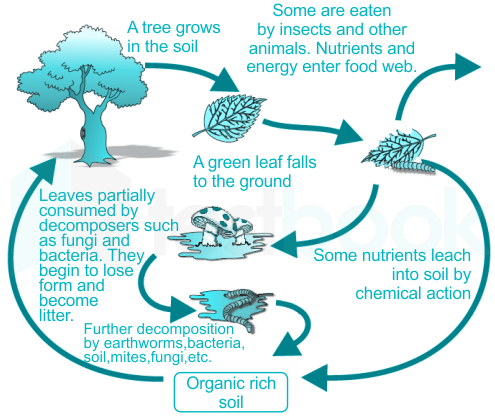
Nowadays, the part about warmth and light is often lost to kids, but the part about food is still obvious, even if subconsciously. This is why the Log is not the horrible barbaric tradition that the "haha poop and violence" crowd would make you believe.
And don't get me wrong, it can still be funny! We're the first ones to make jokes about it. And you can, too! But don't spread false ideas: the Spanish word "uncle" appears nowhere near this tradition because it doesn't have anything to do with uncles nor with Spanish-speaking cultures. It's called the Christmas Log (Tió de Nadal, Soca de Nadal, Tronca de Nadal, Tizón de Nadal, etc depending on the area, all meaning "Christmas Log") and it's celebrated by the Catalan people and a part of the Occitan and Pyrenean Aragonese people. The word "poop" (as an imperative verb, as in "please poop for us") appears in the song, but not in the name.
I know that, now that misinformation has gone viral, a post won't stop it. But I hope at least people with a genuine interest can learn some more. By all means, keep laughing! Make all the memes you want! But knowing the whole story will give you understanding. And, please, don't argue in favour of banning our cultural practises, we've had enough of that for centuries.
#tió de nadal#nadal#tradicions#catalunya#catalan culture#catalan#catalonia#coses de la terra#cultures#culture#anthropology#christmas traditions#christmas#folklore#folk culture
1K notes
·
View notes
Text
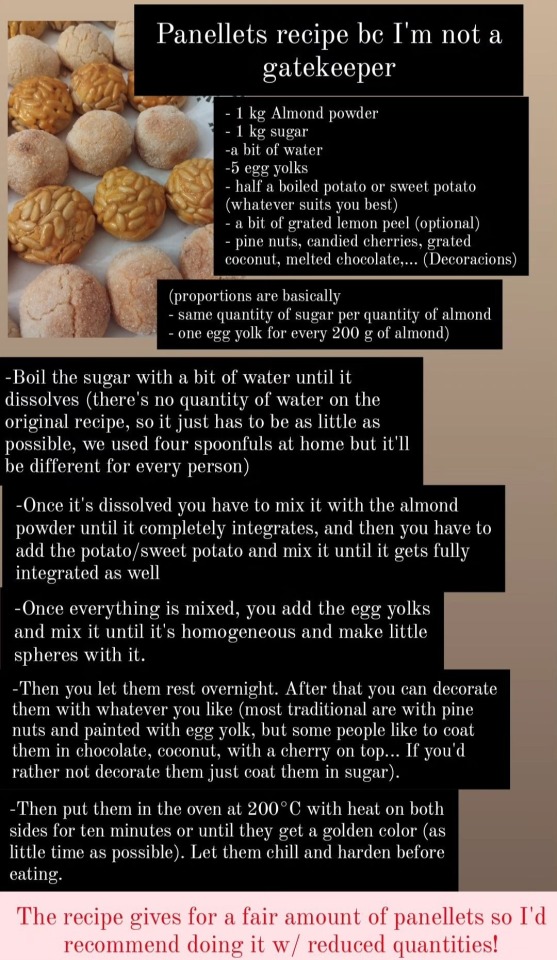
Today I posted this recipe for panellets (traditional Castanyada and all saints day sweets on catalonia) on IG so I thought I'd share it here as well. Feliç Castanyada, Halloween or whatever y'all celebrate!
#vhal ranteando#coses de la terra#catalunya#catalonia#panellets#recepta panellets#recipes#food#traditional food#tradicions#castanyada#Halloween#all saints day#sweets
4 notes
·
View notes
Note
what are your favourite catalan movies?
I'm going to be very mainstream here but I loved Casa en flames (A House On Fire) so much. I think it's the best movie I've seen this year 2024 (not best Catalan movie, I meant best movie of any nationality). Btw, this movie is now available on Netflix with English subtitles! It's a comedy-drama about a family that meets in their holiday home before selling it and all the problems and secrets are brought up, revealing the character's insecurities. It's very well written and shows again how Emma Vilarasau is such an amazing actress.
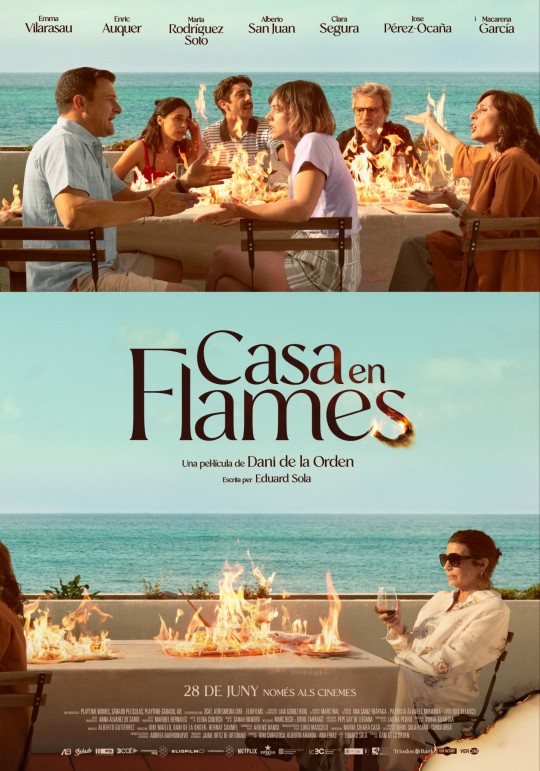
Another movie I absolutely adored was El mestre que va prometre el mar (The Teacher Who Promised the Sea). I doubted on including this one as Catalan movie or not because it's a Catalan production with a Catalan actor as main character representing a real Catalan man, but the movie is mostly in Spanish since most of the events take part in Spain and not in Catalonia, but I think it still counts. Either way, it's a beautiful movie and definitely my favourite movie of 2023. It's explained from the view of a woman who wants to find out what happened to her grandfather's family and ends up visiting a mass grave being dug up in central Spain (context note: the state of Spain is the 2nd country in the world —after Cambodia— with a highest number of disappeared people because of all the people in mass graves during the civil war and the early years of the dictatorship, thousands of families are still looking for their relatives). It leads her to uncover the real story of Antoni Benaiges, a teacher from Catalonia who was sent to teach in the landlocked Spanish countryside in the early 1930s (pre-Civil War). It's a very heartwarming antifascist story about what a teacher can be, about children's freedom, and a reminder of the importance of historical memory. I really recommend everyone to watch it. (The movie can be streamed in Movistar+ and rented in many other international platforms.)
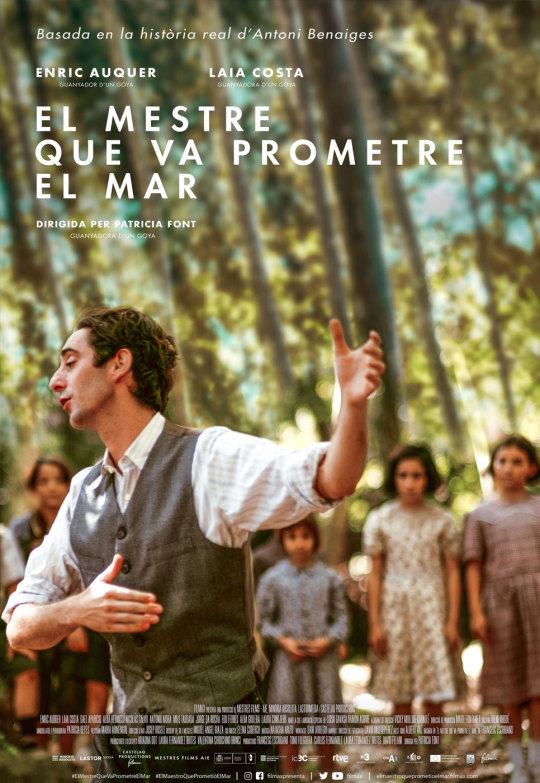
Other Catalan movies that I liked a lot are La Vampira de Barcelona and Salvador.
La Vampira de Barcelona (The Barcelona Vampiress) (2020) is a thriller with drama and some horror based on the real story of a woman who lived in Raval (poor quarter in Barcelona) who was accused of being a serial killer kidnapping children to use their blood in the early 1900s. I really liked this movie because I think we've all heard the legend but here the filmmakers went for a more historically-accurate version of what happened and how she was used, with a strong social critique, so it was a very interesting take on the story. It talks about very heavy topics though including children kidnapped to be forced to prostitution. (It looks like in some countries it's on Prime Video but I don't know what subtitles or dubbing it has been.)
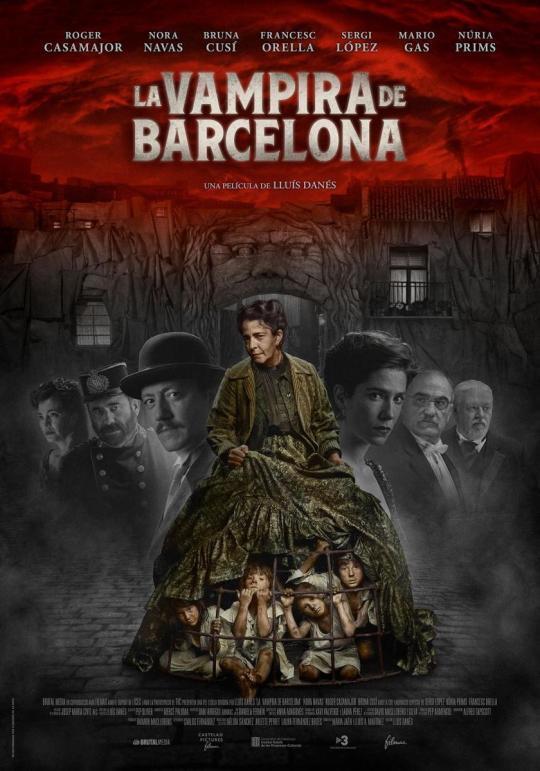
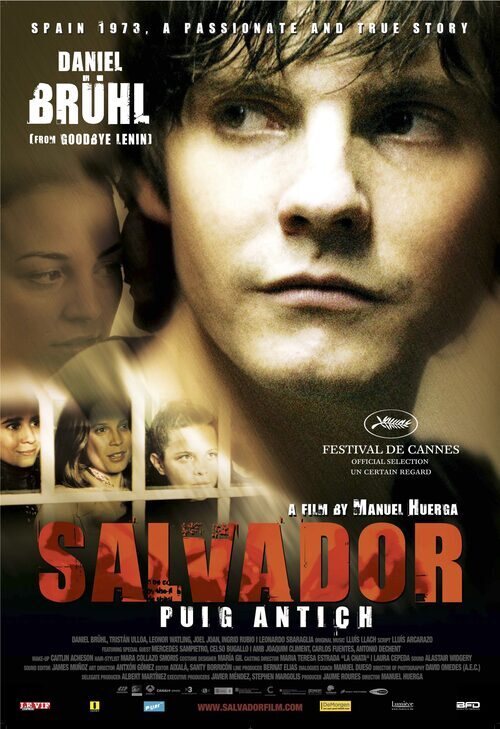
Salvador (2006) is a biopic showing the events that led the 25-year-old Catalan anarchist Salvador Puig Antich to be sentenced to death in 1974. It's been years since I watched it now, but I remember when I saw it as a teenager it impacted me greatly even though I already knew the story. (The whole movie is on YouTube but without English subtitles, for streaming platforms it's on Filmin but it looks like it doesn't have English subtitles either, but there are downloadable subtitles online.)
#also. disclosure: I haven't seen Herois#that's many people's favourite Catalan movie but for some reason I've never gotten around to watching it#💬#ask#coses de la terra#cinema
195 notes
·
View notes
Text

Cada 31 d'agost, la Miku s'aixeca ben d'hora, ben d'hora per veure el seu nom a la llista de súpers que fan anys aquell dia
20 notes
·
View notes
Text
Soc l'últim passatger a l'andana dels teus ulls 😳
4 notes
·
View notes
Text

Menhir prop de la serra de l'Albera zona, Agullana
7 notes
·
View notes
Text
NOU DISC DE LA MARIA 🎉🎉🎉🎉🎉🎉🎉🎉🎉
#also not to be a lesbian etc etc però mare meva la portada del disco 😳😳😳😳#perce rambles#coses de la terra#songs for the void#Spotify
7 notes
·
View notes
